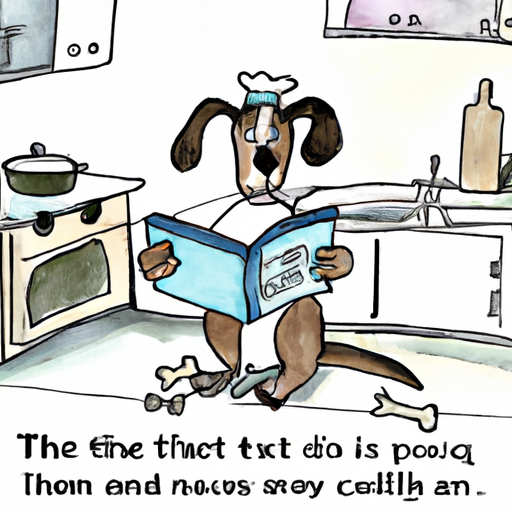As dog owners, it’s our responsibility to know what is safe for our beloved pets to consume, and what could potentially harm them. One of the most debated topics in this area is the issue of whether dogs can eat cooked bones. The short answer is no, dogs should not be given cooked bones. This might seem counterintuitive to some, as we often associate dogs with gnawing on bones. However, the risks associated with feeding your dog cooked bones far outweigh any potential benefits. Let’s delve deeper into this topic.
- Table of Contents
- The Danger of Cooked Bones
- The Science Behind It
- Alternatives to Cooked Bones
-
Frequently Asked Questions
-
Key Takeaways
- Cooked bones can splinter and cause harm to your dog.
- There are safe alternatives to cooked bones.
- Your dog’s health should always be a top priority.
The Danger of Cooked Bones
When bones are cooked, they become brittle. This can cause the bones to splinter when they’re chewed, creating sharp fragments that can cause significant harm to your dog’s mouth, throat, or gastrointestinal tract. These fragments can even cause a blockage or puncture, which can be life-threatening and require emergency surgery. In addition, cooked bones can also cause other health problems such as broken teeth and constipation.
According to VCA Hospitals, these injuries can occur with both large and small bones, regardless of whether they come from poultry, pork, or beef. Their advice is clear: avoid giving your dog cooked bones.
The Science Behind It
The issue lies in the changes that occur when bones are cooked. The high temperatures used in cooking cause the structure of the bone to change, making it more likely to splinter. Raw bones, on the other hand, are more flexible and less likely to break into harmful pieces. However, even raw bones can carry risks such as bacterial contamination, so it’s always best to discuss with your vet before introducing any kind of bone into your dog’s diet.
For more detailed information on this topic, One Top Dog’s article on dog nutrition provides a comprehensive view on what’s best for your dog’s diet.
Alternatives to Cooked Bones
Knowing the risks associated with cooked bones, you might be wondering what alternatives there are for your dog to chew on. Fortunately, there are many safe options available:
- Dog Dental Chews: These are specifically designed to be safe for your dog to chew on and also help improve their dental health.
- Dog-Safe Toys: Durable dog toys made from materials like rubber can be a good alternative for dogs who love to chew.
- Rawhides: While these also come with their own risks, when chosen and used correctly, they can be a safer alternative to cooked bones.
Remember, no matter what kind of chew you choose for your dog, supervision is key. Always monitor your dog while they’re chewing to ensure they’re not choking or swallowing large pieces.
If you’re looking for more pet care tips, check out this guide on One Top Dog.
Frequently Asked Questions
- Can my dog eat raw bones?
While raw bones are generally safer than cooked, they still come with risks such as choking, bacterial contamination, and broken teeth. Always consult with your vet before giving your dog raw bones.
- What should I do if my dog eats a cooked bone?
If your dog has consumed a cooked bone, monitor them closely for signs of distress, such as choking, bloody stool, vomiting, loss of appetite, and lethargy. If you notice any of these symptoms, contact your vet immediately.
- Are there any bones that are safe for dogs?
Some pet stores sell bones that are specifically treated to be safe for dogs to chew. However, it’s always best to consult with your vet before introducing any new items into your dog’s diet.
In conclusion, while it may be tempting to give your dog a cooked bone, the potential risks make it a dangerous choice. Instead, opt for safer alternatives and always prioritize your dog’s health. For more information on keeping your pets safe, check out One Top Dog’s safety tips.



